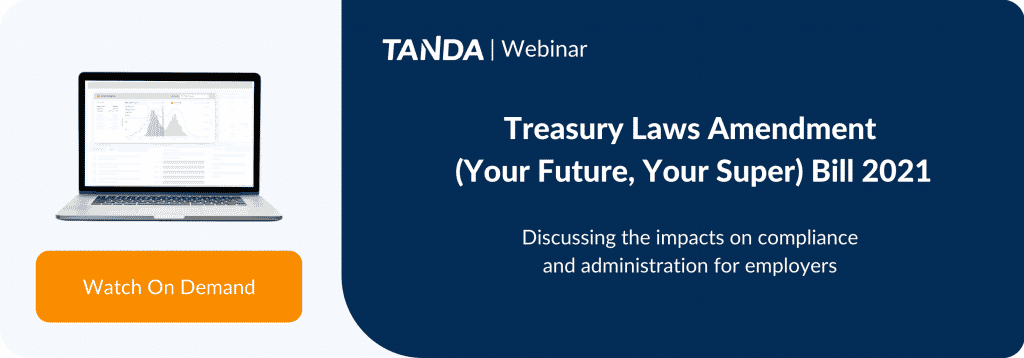On June 18, the Treasury Laws Amendment (Your Future, Your Super) Bill 2021 was passed through Parliament. The Bill introduces a number of changes to the regulation of superannuation in Australia.
The primary aim of these amendments is to aid workers in consolidating their Superannuation, avoiding excessive fees, and understanding how their super fund performs against others in the Australian industry. These reforms are designed to help workers secure a more stable retirement through better management of superannuation, however, they do have the potential to impact employers and their ability to remain compliant when hiring and handling new employees superannuation preferences. Increasing the welfare of those who work is an essential part of managing and employing staff, and staying on top of changing legislation and ensuring staff are paid properly is always top of mind.
The key change Employers need to know about: fund stapling
The bill has now passed through parliament, and from November 1st 2021 Australian employees will keep their existing superannuation fund when transitioning between jobs. Employers will need to pay super into the employees existing super fund unless the employee intentionally selects an alternative fund. The retainment of a sole primary super fund between jobs is referred to as “stapling”.
Employers will need to get information about a new employee’s stapled superannuation fund from the Australian Tax Office (ATO). An employer must determine whether or not an employee has an existing stapled fund, and if so, must pay to that fund prior to paying to a default fund.
The ATO’s involvement
Australian employers or their agents will need to contact the ATO and act in accordance with the ATO’s notification. Accordingly, the ATO is required to make rules for identifying and selecting a person’s stapled fund, create and administer a digital platform to receive and respond to requests from employers about whether a stapled fund for their employee exists, and provide employers with this information.
How can Australian employers reduce administrative burden going forward?
Currently, there is not a proposed way of automatically checking the stapled fund of a new employee, instead, the employer or their agent will be required to contact the ATO themselves each time a new employee is onboarded in order to verify whether the employee has an existing fund, a process that many are confident will become a source of administrative burden for employers.
If an employee makes the choice to join a new super fund during the onboarding process, this has the potential to reduce the administration required, provided the employer’s onboarding process allows them to join a superfund without manual intervention or paperwork.







